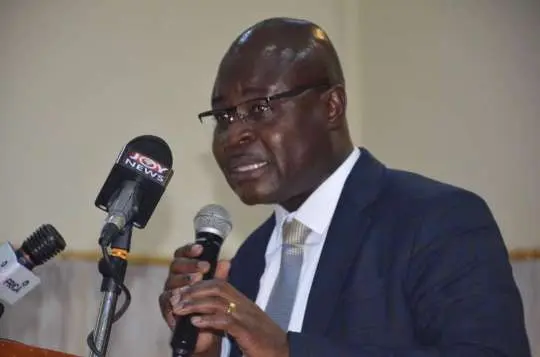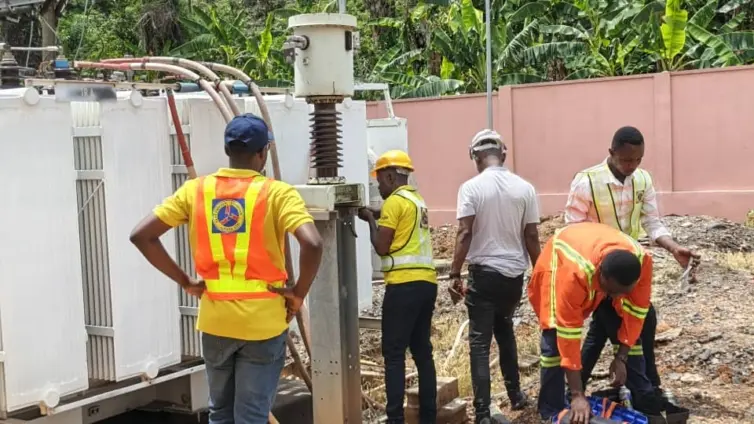Growing frustration simmers among Ghanaian consumers and businesses alike, fueled by persistent issues with electricity billing and the reliability of power supply. At the heart of these concerns lies a potentially significant problem: the accuracy of the very meters measuring electricity consumption. Prof Alex Dodoo, the Director-General of the Ghana Standards Authority (GSA), has voiced serious concerns regarding the prevalence of uncalibrated ECG meters across the country.
His warnings shed light on a situation that could have far-reaching implications for billing accuracy, consumer trust, and the overall health of the national economy. The issue of uncalibrated ECG meters raises questions about fairness and accountability within Ghana’s energy sector.
The revelation that a significant number of ECG meters may not be properly calibrated raises alarms about the potential for widespread billing errors and consumer exploitation. Without accurate measurement, consumers could be unfairly charged for electricity they did not consume, eroding trust in the Electricity Company of Ghana (ECG) and undermining the integrity of the energy sector.
The Alarming State of ECG Meter Calibration in Ghana
Prof Dodoo’s concerns came to the forefront during a recent International Electrotechnical Commission conference, where he highlighted the apparent lack of adherence to National Instrumentation Regulation NI2413, which mandates regular calibration and verification of electricity meters. His statements underscore a potentially systemic problem that demands immediate attention. “Very few of our meters have been calibrated and verified by the GSA,” Prof Dodoo stated, emphasizing the gravity of the situation.
Meter calibration is not merely a technicality; it is a fundamental requirement for ensuring fairness and accuracy in electricity billing. When meters are properly calibrated, they provide an accurate measurement of electricity consumption, preventing overcharging and guaranteeing that consumers only pay for what they actually use. For ECG, accurate meter readings translate directly into revenue assurance, safeguarding the company’s financial stability and enabling it to invest in infrastructure improvements and service enhancements.
Uncalibrated ECG meters pose a multitude of risks. Inaccurate billing inevitably leads to consumer distrust, potentially sparking widespread dissatisfaction and resistance to paying bills. For ECG, it could mean revenue losses if meters are underreporting consumption. Moreover, the use of uncalibrated meters undermines energy efficiency efforts, as consumers may be less incentivized to conserve electricity if they do not trust the accuracy of their bills.
Legal Mandate and Consumer Protection
The GSA is legally empowered to verify and calibrate meters. This authority is enshrined in law, giving the agency the mandate to ensure that all electricity meters meet the required standards of accuracy. “The authority is empowered to do this. Without it, consumers cannot say they are protected, and industry cannot claim to be trading fairly,” Prof Dodoo affirmed, emphasizing the importance of the GSA’s role in safeguarding consumer interests and promoting fair trade practices.
Consumers in Ghana have the right to accurate billing and reliable electricity service. If a consumer suspects that their meter is inaccurate or that they are being overcharged, they have the right to file a complaint with the ECG or the Public Utilities Regulatory Commission (PURC). The PURC is responsible for resolving disputes between consumers and utility companies, ensuring that consumer rights are protected and that fair billing practices are upheld.
Collaboration between the GSA, ECG, and PURC is essential to address the issue of uncalibrated meters and ensure fairness and accuracy in electricity billing. Prof Dodoo noted, “Thankfully, we are working with ECG and PURC to ensure that all the millions of meters in Ghana are properly calibrated and verified by the GSA.” These collaborative efforts aim to systematically calibrate and verify all electricity meters in Ghana, thereby restoring consumer confidence and promoting a more equitable energy sector.
Impact on Ghana’s 24-Hour Economy Ambition
Reliable infrastructure, including accurate electricity metering, is paramount for Ghana’s ambition to establish a thriving 24-hour economy. Businesses operating around the clock require a consistent and dependable power supply, and they need to be confident that they are being billed accurately for their electricity consumption. Uncalibrated ECG meters can undermine this confidence and hinder the growth of a 24-hour economy.
“As we support the President in rolling out a 24-hour economy, it’s important that we provide the quality infrastructure that will make the 24-hour economy succeed,” Prof Dodoo emphasized. This includes not only ensuring a stable electricity supply but also guaranteeing the accuracy and reliability of electricity meters.
Accurate metering also plays a vital role in promoting energy efficiency and sustainability. When consumers are accurately billed for their electricity consumption, they are more likely to be mindful of their energy usage and to adopt energy-saving measures. This, in turn, contributes to a more sustainable energy sector and reduces Ghana’s reliance on fossil fuels. The availability of properly calibrated meters is thus essential for broader national economic and environmental objectives.
In conclusion, the concerns raised by Prof Dodoo regarding uncalibrated ECG meters highlight a critical issue that demands urgent attention. Accurate metering is not simply a technical matter; it is fundamental to consumer protection, revenue assurance for ECG, and the overall development of Ghana’s economy. The ongoing efforts by GSA, ECG, and PURC to address this issue are crucial, and consumers are encouraged to report any suspected meter inaccuracies and to support initiatives aimed at improving meter calibration standards. Only through collective action can Ghana ensure a fair, reliable, and sustainable energy future.
Image Source: MYJOYONLINE






















